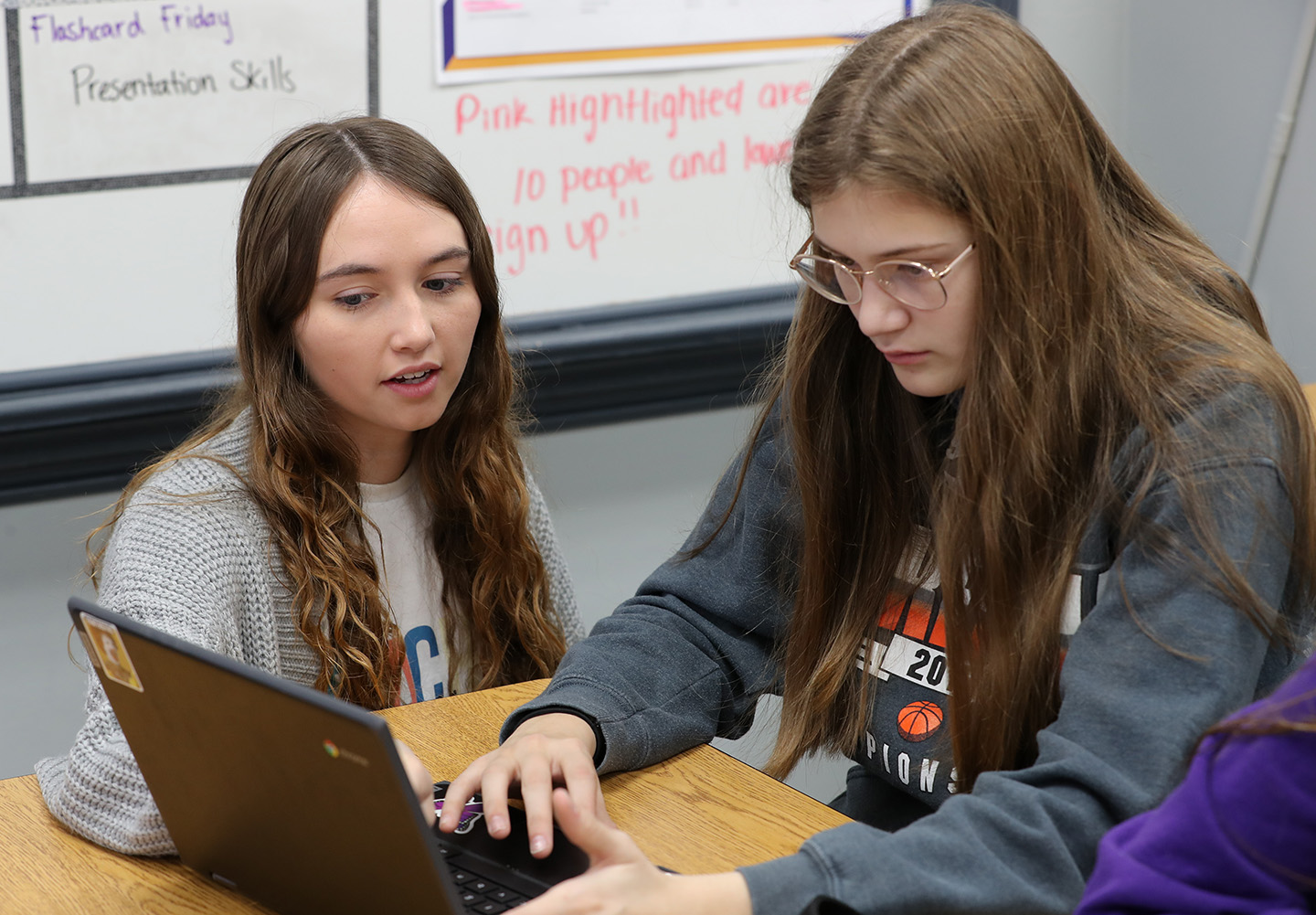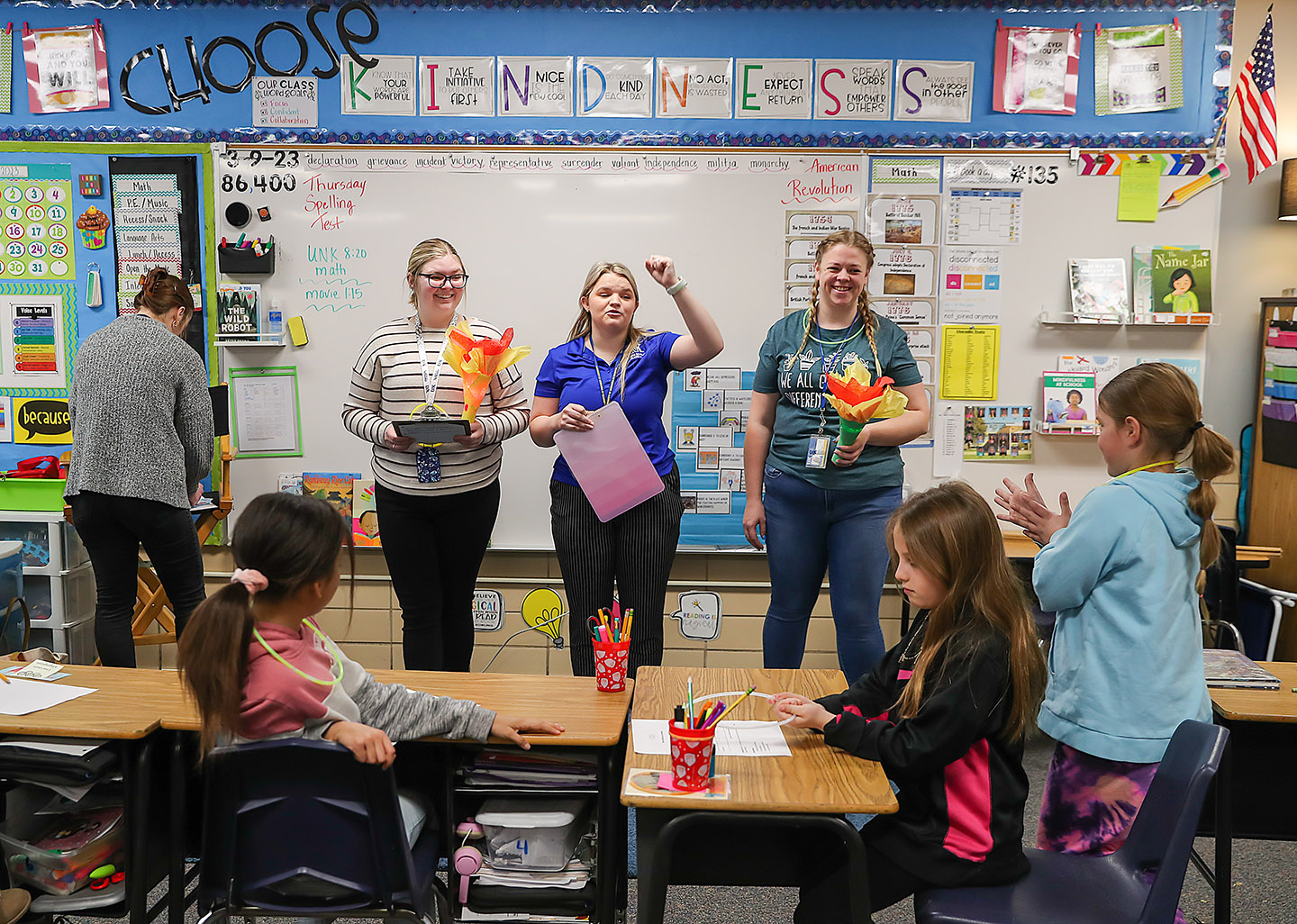
By RYAN ROTHMAN
University of Nebraska System
KEARNEY – Last month, the National Center for Education Statistics – part of the U.S. Department of Education – released a staggering statistic: Nearly half of our nation’s public schools currently report full- or part-time teaching vacancies.
And public schools in Nebraska are facing a teacher shortage that aligns with the national trend. According to fall 2022 data from the Nebraska Department of Education, nearly 700 positions needed to be filled for the 2022-23 school year. When you include private schools, the numbers are even higher.
Filling these positions is critical, both for schools and for their students’ success. To address this need, the University of Nebraska at Kearney’s College of Education is leading the charge to bring more educators into the fold.
UNK’s leadership in training educators isn’t new: the campus has been preparing teachers since 1905, when it was founded as the Nebraska State Normal School at Kearney. Nearly 120 years later, UNK’s College of Education is carrying on that tradition, with over 2,000 students currently training for education-related careers – ranging from early childhood and K-12 education to family science, counseling and school psychology, among other areas.
Mark Reid leads the College of Education as its dean. His exposure to the value of education began at a young age as the son of two educators – his father was an agronomist, extension agent and professor and his mother was an English teacher. After earning degrees in agriculture and agronomy, Reid transitioned to teaching high school science and math, and fell in love with the profession.
Prior to joining UNK, Reid spent 14 years at Texas A&M University-Commerce, where he oversaw eight departments as an associate dean. He was looking to transition into a deanship when the opportunity to lead the College of Education became available. He immediately knew it was a good fit – not only because of UNK’s rich history of teacher education, but its location as well. Reid grew up in small communities in Michigan and South Dakota, spent his career working in rural areas and deeply understands the impact that education can make in rural communities.
“Education is an engine for any community. It’s where we learn our civic pride, our knowledge, our foundational skills. It’s where we are set up for success in higher education or for entering the workforce,” Reid said. “When education is stripped away from rural communities, there’s not a lot left.”
Although the need for more educators spans both rural and urban communities across Nebraska, rural areas are disproportionately affected by teacher shortages. Of the 147 school districts in Nebraska that reported unfilled positions to the Department of Education, 134 are classified as being in non-metro regions of the state.
Although other institutions in Nebraska have teacher education programs, Reid believes that UNK’s location best supports areas of the state where the greatest need exists.
“At UNK, we are uniquely situated to be the university campus that serves the rural population in central and western Nebraska. We take enormous pride in that,” he said.
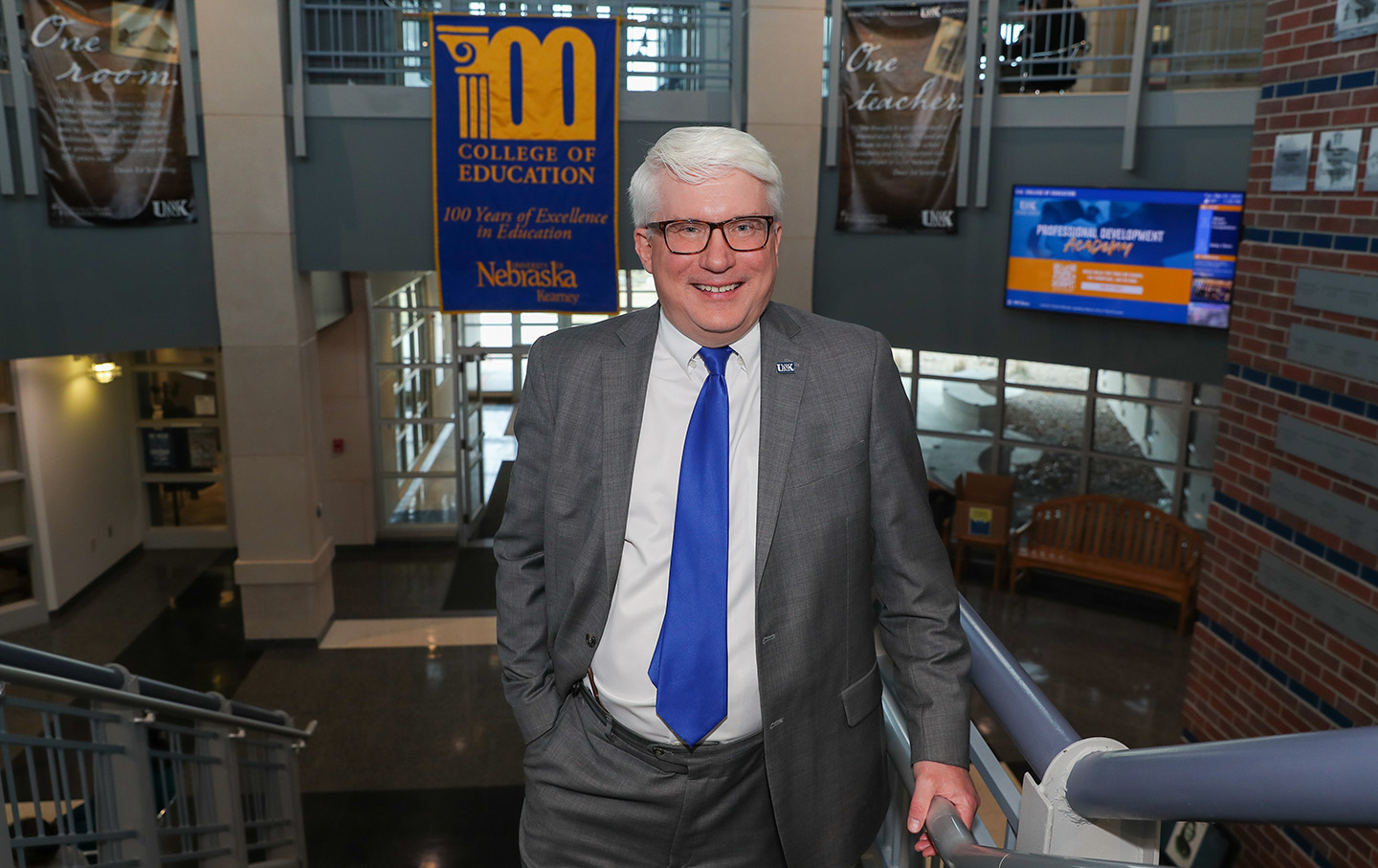
Training Nebraska’s Teachers
When it comes to addressing the shortage of educators in Nebraska, UNK is making a serious impact: the College of Education puts over 200 new educators into the workforce each year. And these educators are prepared to lead their classrooms the first day they walk into them.
The Department of Teacher Education at UNK offers undergraduate degrees that prepare students for careers in early childhood, elementary, middle school, high school and special education. Like many other departments and programs at UNK, experiential learning – or learning by doing – is a critical component of the curriculum.
“The earlier we get students out into schools, the better off they are,” Reid said. “When students learn in our classrooms and then are quickly exposed to teaching concepts in school classrooms, they gain a different – and deeper – understanding of what they are learning.”
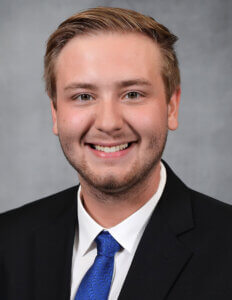
Hands-on experiences are integrated into almost every teacher education course at UNK, giving students real exposure to classrooms before they reach the student teaching phase of their degree program. In one elementary math course offered by the department, class sessions are held at a Kearney elementary school. Students can immediately take the skills and concepts they’ve learned and apply them in the classroom.
Truman Lauck graduated from UNK’s middle level subject endorsement program last May. He now teaches eighth grade math at Schuyler Middle School. When he looks back on his time at UNK, he recalls how hands-on learning was the key element that’s helped him effectively lead his classroom in Schuyler.
“In my first teaching class, we were immediately placed into classrooms to observe teachers. In my later teaching courses, I had to teach at least two lessons a semester in a classroom,” Lauck said. “Being able to get these experiences so early on was incredibly beneficial. I didn’t jump into teaching unprepared.”
The College of Education isn’t only training Nebraska’s future teachers – it’s also training students for critical support positions. This includes speech-language pathologists, counselors, school psychologists and family scientists. To Reid, these efforts make an additional social impact.
“Everyone in the College of Education wants to make people’s lives better,” he said. “Not only are our graduates creating an economic impact and filling open positions, they are also supporting the critical mental health and physical health needs of the communities they serve.”
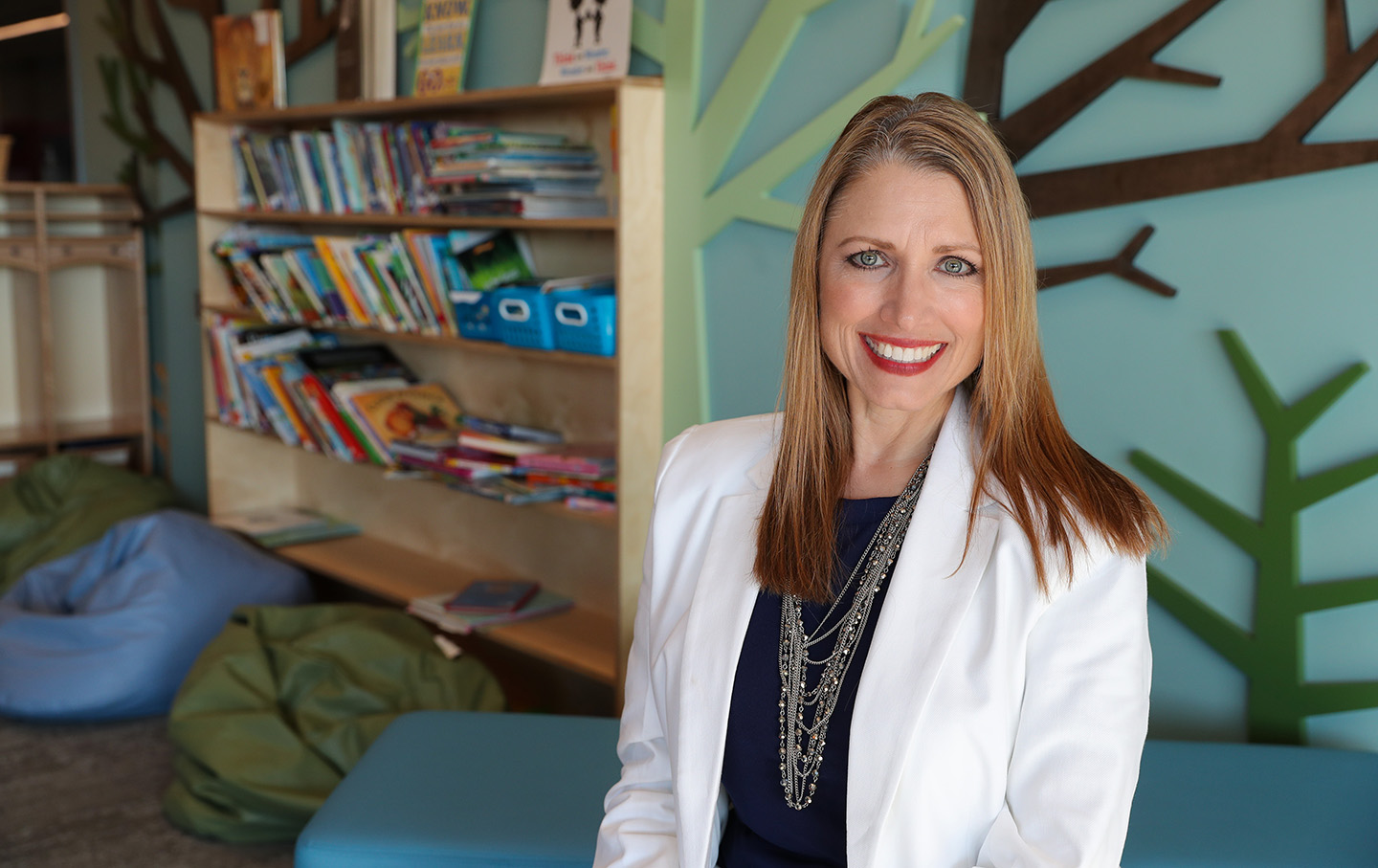
Educating Nebraska’s Youngest Citizens
The Center for American Progress defines a child care desert as an area with more than 50 children under the age of 5 that either has no child care providers or more than three times as many children as there are child care slots.
In 2021, nearly 30% of Nebraska’s population lived in a child care desert. A lack of options can create negative effects both socially and economically for children, families and the communities they live in.
Marisa Macy is one of the College of Education experts aiming to find solutions to Nebraska’s child care deserts. She sees child care deserts as one of the biggest issues facing early childhood education in Nebraska.
“I’ve heard horror stories where parents take their kids across multiple counties just to get support and care. That’s a problem. It’s a problem not just for the family and parents, but it’s a problem for our society and our economy,” Macy said. “Accessible child care is important to keep people in communities, especially rural communities. It builds economic prosperity and increased quality of life.”
Outside of training students as an associate professor, Macy serves as UNK’s Cille and Ron Williams Endowed Chair of Early Childhood Education and the UNK Buffett Early Childhood Institute Community Chair. As an endowed chair, her work focuses on outreach and creating community pathways to support children and families. In collaboration with the Buffett Institute, Macy is developing connections between the Buffett Institute and UNK’s campus – and then extending those connections into communities across the state.
In areas where resources are scarce, these connections are critical.
Macy recalls a phone call she received from a father from St. Paul when she first arrived at UNK. His daughter couldn’t attend preschool due to a lack of spots available, and a group of community members were working to create a new classroom in the basement of a church. The only problem? They couldn’t find an early childhood educator to staff the classroom.
“Thanks to UNK and the Buffett Institute, I was able to immediately connect him with resources and share the opening with our students and graduates, who are highly qualified early educators,” Macy said.
The College of Education’s early childhood program is helping produce early childhood educators who are not only driving the leading edge of curriculum, but also hit the ground running on day one.
“One of the things that makes us a great place to study early childhood is that we have fresh approaches,” Reid said. “Our faculty are not sitting on their hands and waiting for somebody to tell them to move forward. They are constantly working to meet the needs of students and the workforce.”
As is the case in all the college’s education programs, experiential learning is critical to students’ success in the early education field. UNK students have access to a state-of-the-art learning lab, the Plambeck Early Childhood Education Center.
Opened in 2019, the Plambeck Center features 11 classrooms that serve up to 180 children from infant to age 6, including those with special needs. It also serves as a lab school for UNK students, who work directly with children and participate in observations, practicums, diagnostic testing, research and other experiential learning opportunities.
“The Plambeck Center gives us a place where people of different disciplines and levels of experience can meet, learn and collaborate,” Reid said. “Our students receive support, learn concepts in the field and develop skill sets that help them become effective educators.”
The combination of innovative curriculum and hands-on experience is making a real impact. Over recent semesters, UNK has graduated 83 educators with early childhood endorsements, ready to support children and families across Nebraska.
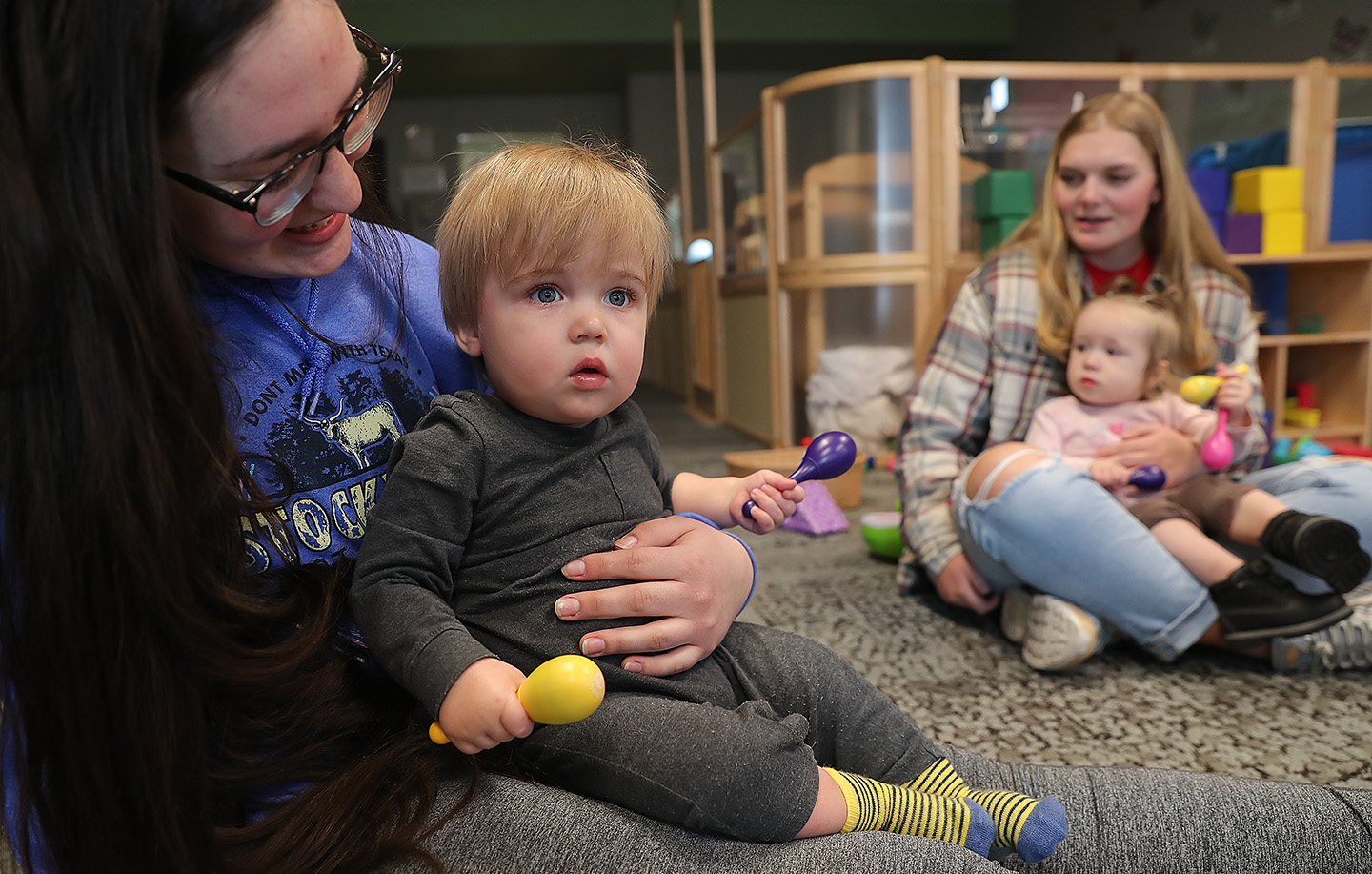
Supporting Professionals in the Field
While the College of Education has a strong focus on filling critical openings, it’s also focused on providing resources and educational opportunities to those educators currently serving students.
Last October, the UNK-Community Early Childhood Conference brought together hundreds of educators, administrators, staff and community members to network, attend training sessions, share resources and learn from UNK experts and each other on a variety of early care and education topics.
The NexGen Leadership Academy, a program launched by the Department of Educational Administration, is helping to develop and support current and future leaders in Nebraska’s educational system. Nearly 150 educators representing 17 school districts from across the state were part of the academy’s first two cohorts.
For educators looking to advance their education, UNK offers online master’s degree programs to meet them where they are – on their own time and in their own communities. The strength of these programs has been noticed on a national level: UNK’s online master’s in education program is ranked 34th in the nation by U.S. News and World Report.
When it comes to outcomes, Reid believes the College of Education’s impact is much broader than training Nebraska’s education workforce – it’s an investment in our state’s future.
“We’re producing educators who are teaching our future workforce,” he said.
